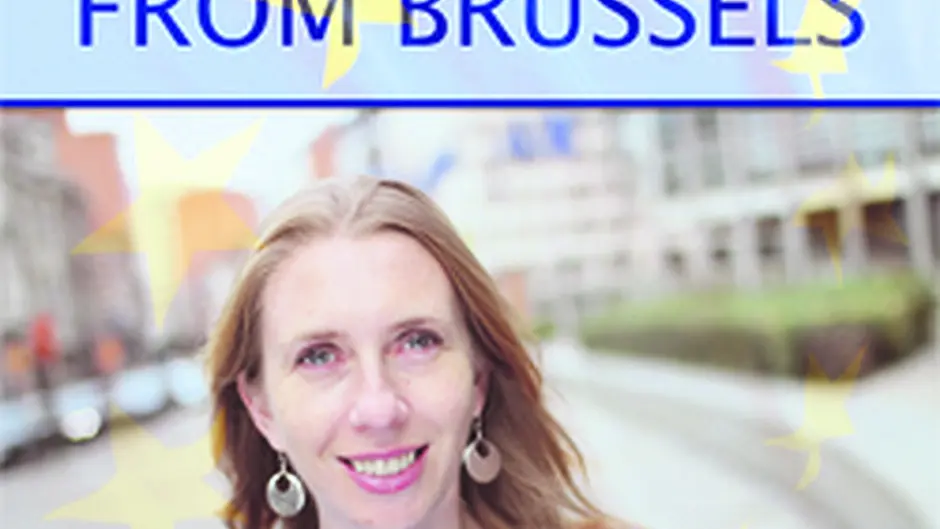EU and US leaders agreed to set up a ‘working group’ or ‘joint action plan’ at a meeting in Brussels on May 25th, paving the way for further co-operation on ‘difficult’ bilateral issues such as trade in food products, but not necessarily the re-launch of comprehensive negotiations.
EU and US leaders agreed to set up a ‘working group’ or ‘joint action plan’ at a meeting in Brussels on May 25th, paving the way for further co-operation on ‘difficult’ bilateral issues such as trade in food products, but not necessarily the re-launch of comprehensive negotiations.
There are very few details known about the joint group first floated by US President Donald Trump, Presidents Donald Tusk (European Council) and Jean-Claude Juncker (Commission) at the high-security meeting ahead of the NATO Summit, but sources say it would seek to reduce the administrative burden and agree on standards in the car sector and other industries.
The high-level meeting on foreign policy, security, climate, trade and Brexit was the first personal contact with the leaders of the EU institutions since Trump took office on January 20th. Taking place on Ascension Thursday – a public holiday in Belgium – all streets, train stations and metro lines around the EU quarter were closed on the Thursday afternoon.
Commenting after the gathering that lasted for over an hour, Tusk said both sides agreed to step up counterterrorism measures, while issues such as climate and trade ‘remain open.’ The US administration is currently reviewing its position on climate change, which will be decided at a later stage.
Speaking to reporters, Tusk said he was not 100% sure if the EU shares a ‘common opinion’ with Trump on Russia, but when it comes to the conflict in Ukraine, both sides were on the ‘same line.’ The former Polish Premier said Brussels and Washington must defend ‘fundamental Western values, like freedom, human rights and respect for human dignity,’ adding that the greatest task was the ‘consolidation of the whole free world around those values and not just interests.’ While in Europe, the billionaire businessman participated at the NATO Summit as well as the Summit of G7 leaders in the Sicilian city of Taormina. Following the G7 meeting, German Chancellor Angela Merkel was sanguine that the US President was not the most reliable international partner and that traditional alliances were fading. Speaking in Munich on May 28th, Europe’s most influential leader said the ‘times in which we could fully rely on others, they are somewhat over.’
Spotlight on water scarcity at meeting
EU Farm Ministers gathered in sunny Valletta in Malta last week for the informal Council gathering with research and innovation in the field of water resources and climate change adaptation at the top of the agenda.
The ‘formal’ discussion on water conservation and adapting to climate change, on May 23rd, took place in the splendid Grand Master’s Palace – the island’s administrative centre for almost three and a half centuries and official presidency venue. Before proceedings commenced, delegates observed a minute’s silence to remember the victims – many of whom were young children – who lost their lives and were wounded following a terrorist attack in Manchester on May 22nd.
During the exchange of views, Ministers called for a more resilient agricultural sector to face the challenge of climate change and water scarcity including more robust risk management tools (such as insurance schemes). Research and innovation in the field of water management are key, while the Mediterranean island was keen to stimulate debate on ‘innovative solutions to achieve more crop per drop.’ As the Fine Gael leadership contest loomed back home, Ireland’s Minister Michael Creed, who did not publicly declare which of the two candidates he preferred, underlined the need to share results of ‘best practice’ on precision farming, big data and agri-tech innovations (satellite navigation) in order to avoid the duplication of research initiatives.
Sufficiently-financed rural development programmes (agri-environment schemes) are paramount to tackling ‘urgent climate challenge,’ the Macroom man added – no doubt keen to hold onto his Cabinet position under the new leadership.
• Rose O’Donovan is Editor of the Brussels-based agricultural publication AGRA FACTS.







